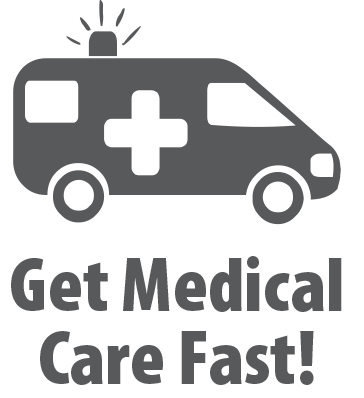Pregnancy & Prenatal Care
Gestational Diabetes
A pregnant woman can have diabetes. If she didn’t have it before the pregnancy, it’s called gestational diabetes. (Gestational refers to pregnancy.) It can begin any time during pregnancy. It usually begins in the last half, though. It goes away after the baby is born. But the woman has a greater risk of getting diabetes later.
Symptoms
• Feeling very tired
• Rapid weight gain
• Feeling very thirsty
• Having to pass urine often
Also, a sign for gestational diabetes is when the baby gets too big during the pregnancy.
All pregnant women should be screened for diabetes. Screening happens through urine and blood tests. Those are part of routine prenatal health care visits.
Causes
Any pregnant woman can develop gestational diabetes. But risk factors may be:
• Obesity before pregnancy
• High blood pressure before pregnancy
• Having a baby that weighed more than 9 pounds at birth in the past
• Having a stillbirth in the past
• Having a child with a birth defect in the past
• Being older than 25
• Being pregnant with more than one baby
Treatment
Special problems can be avoided with treatment. Without treatment, the baby can get too big. The mother may not be able to have a vaginal birth. Other problems are preeclampsia and preterm birth. Preterm birth is when the baby is born 3 or more weeks before the due date. There can also be delivery problems. But a woman with gestational diabetes can have a healthy baby. She needs proper medical care, though.
Blood sugar must be controlled. This is done through:
• Special diet from the health care provider
• Exercises from the health care provider
• Insulin shots, in some cases, when diet and exercise are not enough. Insulin is a hormone. Among other things, it keeps blood sugar from getting too high. The provider teaches how to do the shots. The provider teaches the mother how to check her own blood sugar. It is important to do what the provider requests.
• Having prenatal visits more often. The provider checks the mother’s daily blood sugar record. Tests are done to see how the baby is doing.
• Extra care at delivery
{Note: The baby should be checked for low blood sugar a day or so after birth.}
Questions to Ask
Question
01
Do you have a lot less movement from your baby than what you’ve been having? Or, no movement from the baby after you lie on your side 1 hour after you eat a meal?

Get medical care without delay. If symptoms are life threatening go to the ER or call 9-1-1. Don’t call 9-1-1 or use the ER if symptoms do not threaten life. Ask your doctor ahead of time where you should go for a problem that needs prompt care, but not emergency care.
x
Question
02
Are you in the 3rd trimester? If so, have you not felt the baby move 10 times between breakfast and supper? Or have you not felt the baby move 3 times within 3 hours of a meal?

Call your doctor or health care provider and state the problem. He or she can decide what you should do.
x
Question
03
Do you have any of these symptoms?
• Feeling very thirsty all the time
• Yeast infections that keep coming back
• Needing to pass urine more often than any time in your pregnancy

Call your doctor or health care provider and state the problem. He or she can decide what you should do.
x
Question
04
Are you in the 2nd trimester of your pregnancy? Are you gaining more than 3 pounds a week? Are you in the 3rd trimester of your pregnancy and are you gaining more than 1 pound a week?

Call your doctor or health care provider and state the problem. He or she can decide what you should do.
x
Question
05
If you have a special diet to follow, is it hard to do this?

Call your doctor or health care provider and state the problem. He or she can decide what you should do.
x
Question
06
Do you have diabetes and are you thinking about getting pregnant or could you be pregnant?

Call your doctor or health care provider and state the problem. He or she can decide what you should do.
x
Self-Care / Prevention
If you get diabetes during pregnancy:
• Follow the diet and exercise plan your health care provider or dietitian gives you.
• Drink at least 8 to 10 cups of fluids a day. Drink enough for your thirst. Limit ones with a lot of sugar. Examples: all kinds of sodas, fruit drinks and juices.
• Get plenty of rest when you feel tired.
• If you are told to do so, test your blood sugar levels at home. Your health care provider will tell you how. Keep a daily record of the results.
• After you have your baby, get your blood sugar checked when your doctor tells you to.
{Note: Some pregnant women need to give themselves insulin shots at home. If your provider says you need to, you will be shown how. Be sure to give the insulin correctly. It’s an important way of taking care of yourself and your baby.}

Download an offline pdf file.
RELATED ARTICLES
<
>
2021 © American Institute for Preventive Medicine - All Rights Reserved. Disclaimer | www.HealthyLife.com








